REVIEW: WILD BERRIES and SWAY [DVD]

Unfolding the World of Miwa Nishikawa
Yureru / Hibi Ichigo (ゆれる / 蛇イチゴ)
Directed by Miwa Nishikawa (西川美和)
Japan | 111 mins / 108 mins
Japanese with English subtitles
Residing in Japan, where sexual inequality is never problematized by film “journalists” (or any kind of journalist), I sometimes undergo hallucinations that America is actually a country of united states, a Capraesque nation in which journalism can wield its power to influence society. Not only in Hollywood, which is fortunate enough to consider such arguments, there should also be controversies in Japan over the lack of female empowerment (and everlasting sexist propaganda, despicable racism, inaccurate portrayals of LGBT characters…). Among Japanese female filmmakers working today, besides Naomi Kawase, one of the most significant figures is Miwa Nishikawa. As we await the world premiere of her latest work, The Long Excuse (2016), at the Toronto International Film Festival (it opens in Japan on October 14), no excuse is necessary to revisit Nishikawa’s earlier works with English subtitles.
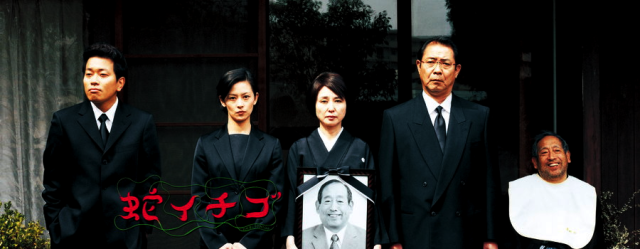
Wild Berries (2003), Nishikawa’s directorial debut, comes across as her version of Koji Fukada’s Hospitalité (2010) with disquieting strains of Kiyoshi Kurosawa’s Tokyo Sonata (2008). Still present, though outdated, the conservative Japanese household is comically presented in this family drama, with a senile grandfather, patriarchal father, self-sacrificing mother, and amiable daughter. When the mother abandons the grandfather during a heart attack, and the enormous debt sof the father is divulged at grandfather’s funeral, and the hands of a merciful angel (rather, a lawyer) are offered by their abandoned son to solve the financial issues, what should they do?
Since the scheming and tactful son is played by Hiroyuki Miyasako, a popular comedian, the film never becomes too serious. Keeping a distance between the camera and the characters, Nishikawa employs long takes with long shots so that spectators can observe the comical situation in a detached manner. Because of this, the daughter’s suspicion becomes intelligible, suspicion that the biologically-related brother might be just a heartless intruder who bamboozles his own family.
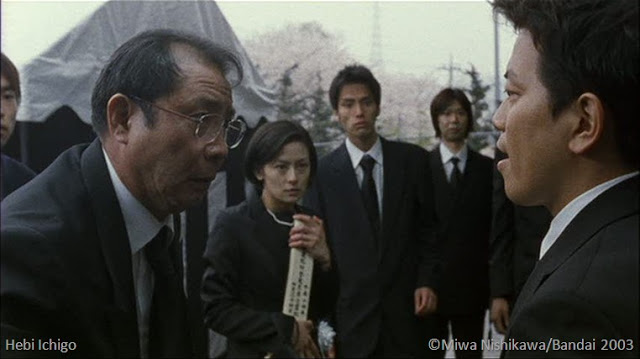
However superficially comical Wild Berries is, the director’s thematic concerns are not as lightheaded as the film pretends them to be. When a fragile curtain of secrets is unveiled, what remains is only hypocrisy and clamorous masculine pride. In contemporary households, even biological relationships end up being untrustworthy. How can the good-hearted daughter, and we in general, react to collapsed family values without losing integrity? As a rejoinder, Nishikawa bestows a rather surprising ending on this thoughtful film.
Following up her cynical takedown of insular conservatism, Nishikawa again tackles contemporary issues in Japan, in more serious and personal ways, with Sway (2006). Her Cannes-favorite sophomore feature represents a futureless countryside in comparison with the dazzling metropolis, which relationship is embodied by two brothers, Minoru (Teruyuki Kagawa) and Takeru (Joe Odagiri). In this poignant tale of a trial, Minoru, a gas station owner, is accused of murdering his love interest, Chieko (Yoko Maki), who had a relationship with her presumable ex, Takeru, a self-centered photographer and Minoru’s younger brother who just came back to their hometown.
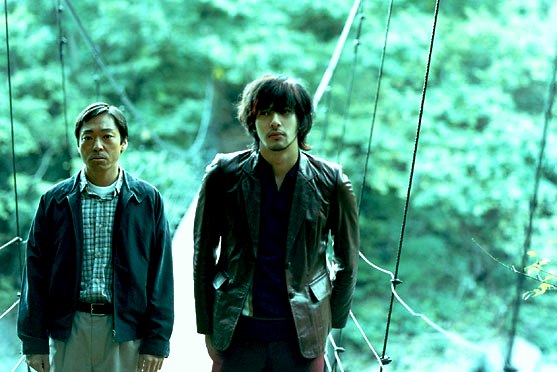
Stylistically speaking, Nishikawa’s formalistic technique becomes rather conventional here, but Sway proves her adroit ability at storytelling. From the outset, there is a huge tension between the seemingly intimate brothers; even the back of Minoru looms non-verbally, with the morbid atmosphere of a man with scars on his wrist. Kagawa is at his best, much creepier than his role in Kiyoshi Kurosawa’s Creepy (2016), imbuing a dead soul into a dreamless character who inherited the family business without knowing the outside world, unlike the younger brother, who simply escaped from the conservative countryside. As Nishikawa’s outstanding script claims, even a prison cell is freer for Minoru than his surroundings.
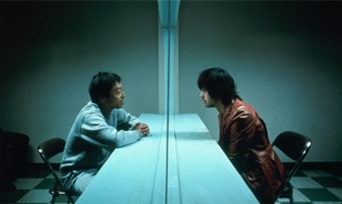
Having said that, Sway does not depict the rural lifestyle as a mere abomination. In the end, the metropolis is an abominable force that exploits the countryside that Takeru cogently represents. After the unmitigated family trial, however, Nishikawa prepares a humanistic final note, though her humanism never insinuates brainless everything-is-alright optimism. Such Nishikawa characters as the self-sacrificng mother in Wild Berries, whose fatigue prevents her from saving the grandfather, and like Minoru in Sway, whose mental stability collapses after he loses a spoonful of hope, cannot help but unveil boisterous emotions. Nishikawa cherishes and accepts those formidable feelings precisely because salvation can only be found after unfolding the natural barbarism that all human beings are destined to have.
By Kenta Kato
Kenta Kato is a Tokyo-based writer, film critic and festival programmer, currently working on a Master’s degree in Film Studies at Waseda University.
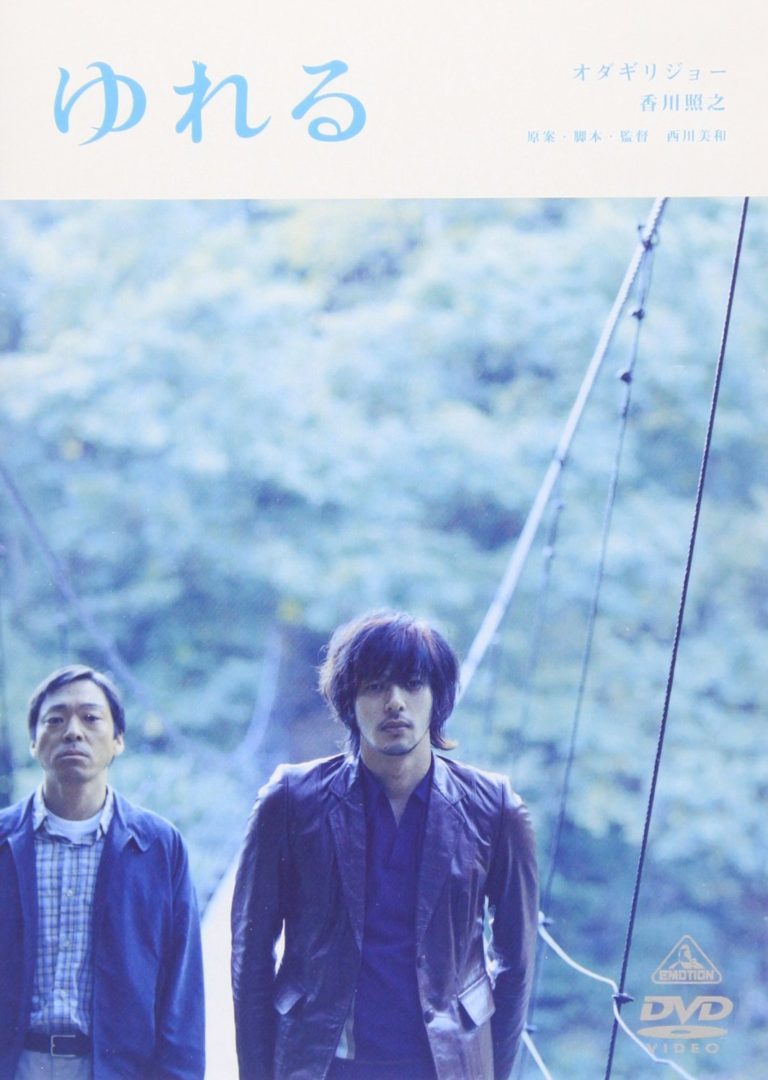
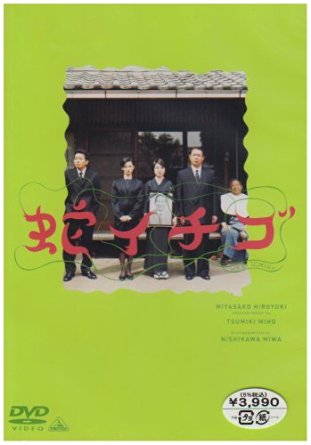
・字幕: 日本語, 英語 means subtitles with Japanese and English,
・英語字幕版 means with English subtitles.
